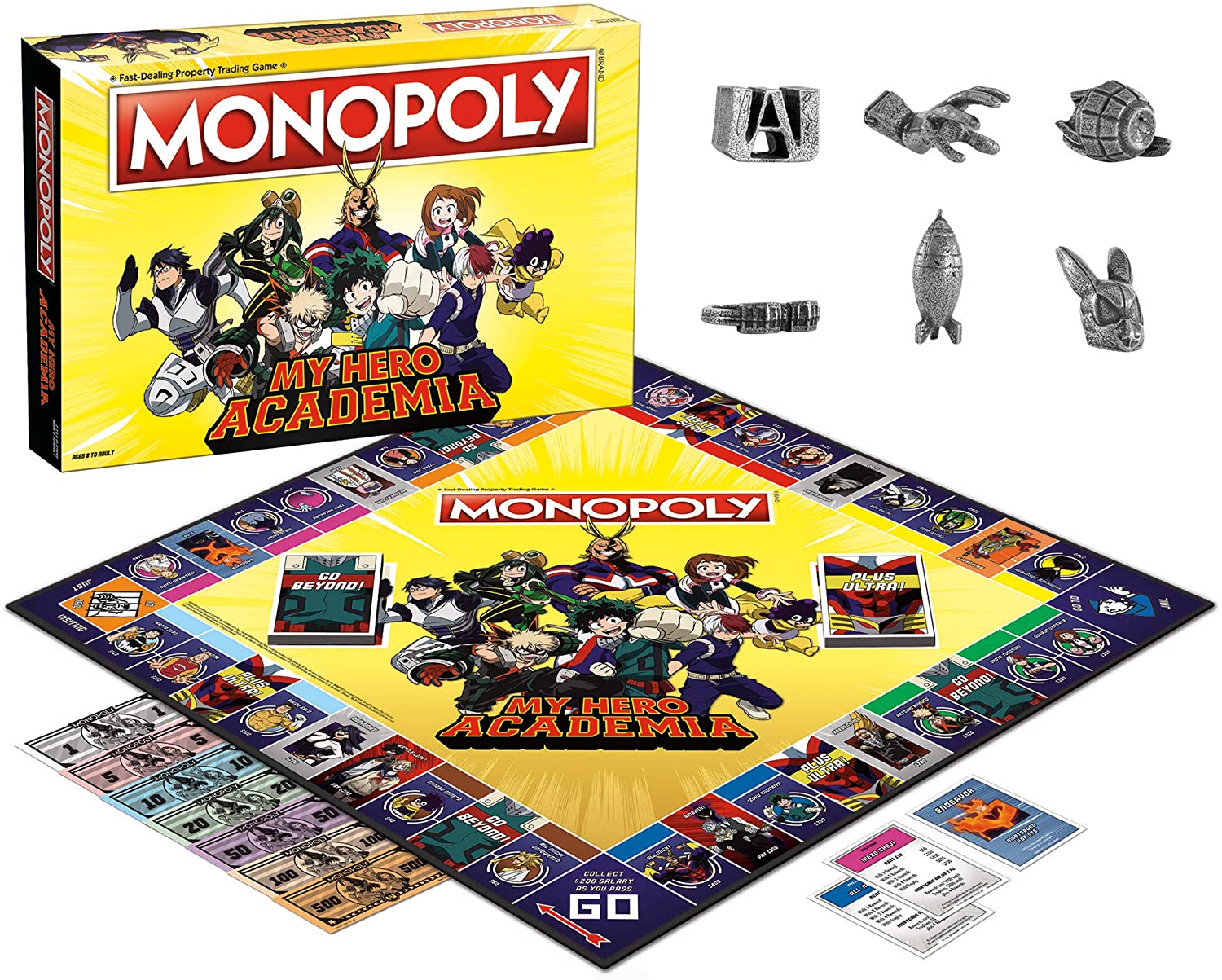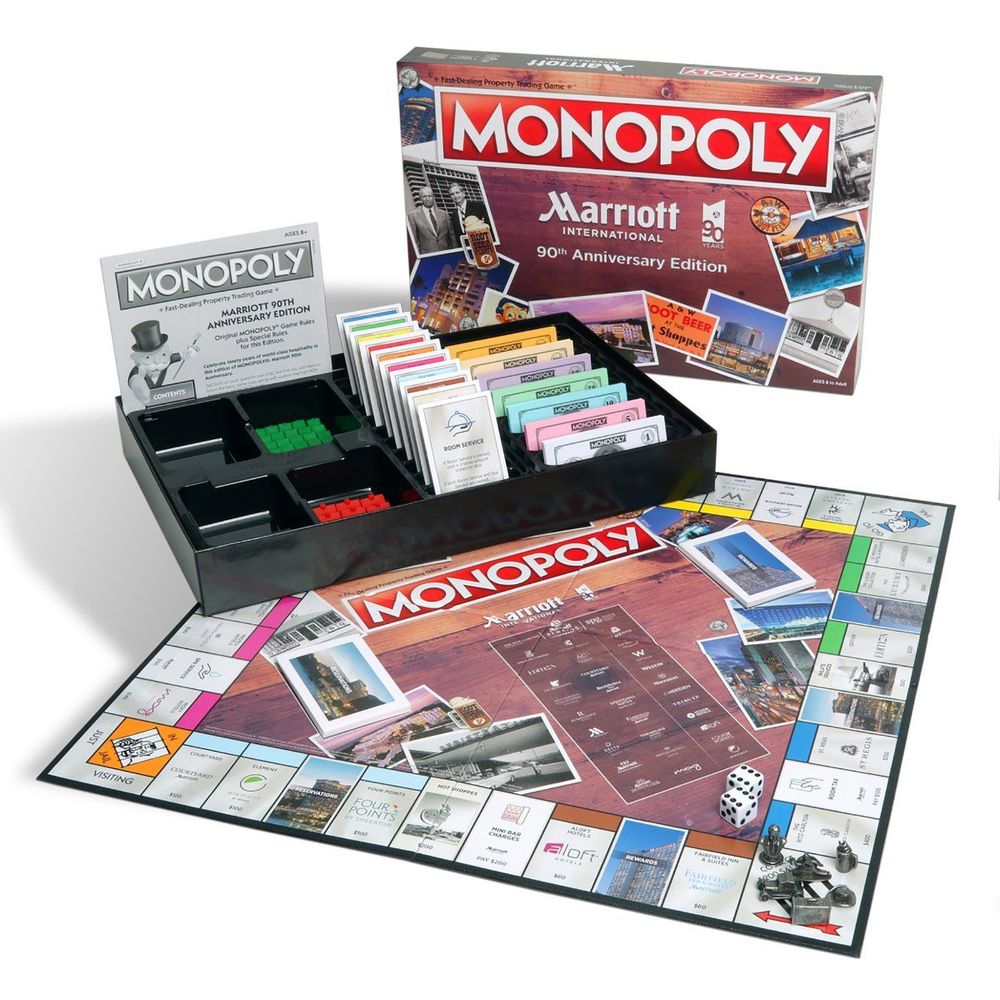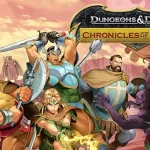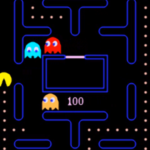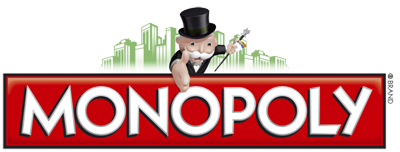
Monopoly is a multi-player economics-themed board game. In the game, players roll two dice to move around the game board, buying and trading properties, and developing them with houses and hotels. Players collect rent from their opponents, with the goal being to drive them into bankruptcy. Money can also be gained or lost through Chance and Community Chest cards, and tax squares. Players receive a stipend every time they pass “Go”, and can end up in jail, from which they cannot move until they have met one of three conditions. The game has numerous house rules, and hundreds of different editions exist, as well as many spin-offs and related media. Monopoly has become a part of international popular culture, having been licensed locally in more than 103 countries and printed in more than 37 languages. As of 2015, it was estimated that there have been 275 million copies sold worldwide. (Source from Wikipedia)

The Landlord’s Game is a board game patented in 1904 by Elizabeth Magie as U.S. Patent 748,626. It is a realty and taxation game intended to educate users about Georgism. It is the inspiration for the board game Monopoly.


Monopoly is derived from The Landlord’s Game created by Lizzie Magie in the United States in 1903 as a way to demonstrate that an economy that rewards individuals is better than one where monopolies hold all the wealth, and to promote the economic theories of Henry George—in particular his ideas about taxation. The Landlord’s Game had two sets of rules originally, one with taxation and another on which the current rules are mainly based. When Monopoly was first published by Parker Brothers in 1935, it did not include the less capitalistic taxation rule, which resulted in a more aggressive game. Parker Brothers was eventually absorbed into Hasbro in 1991. The game is named after the economic concept of monopoly—the domination of a market by a single entity.


monopoly (1935)
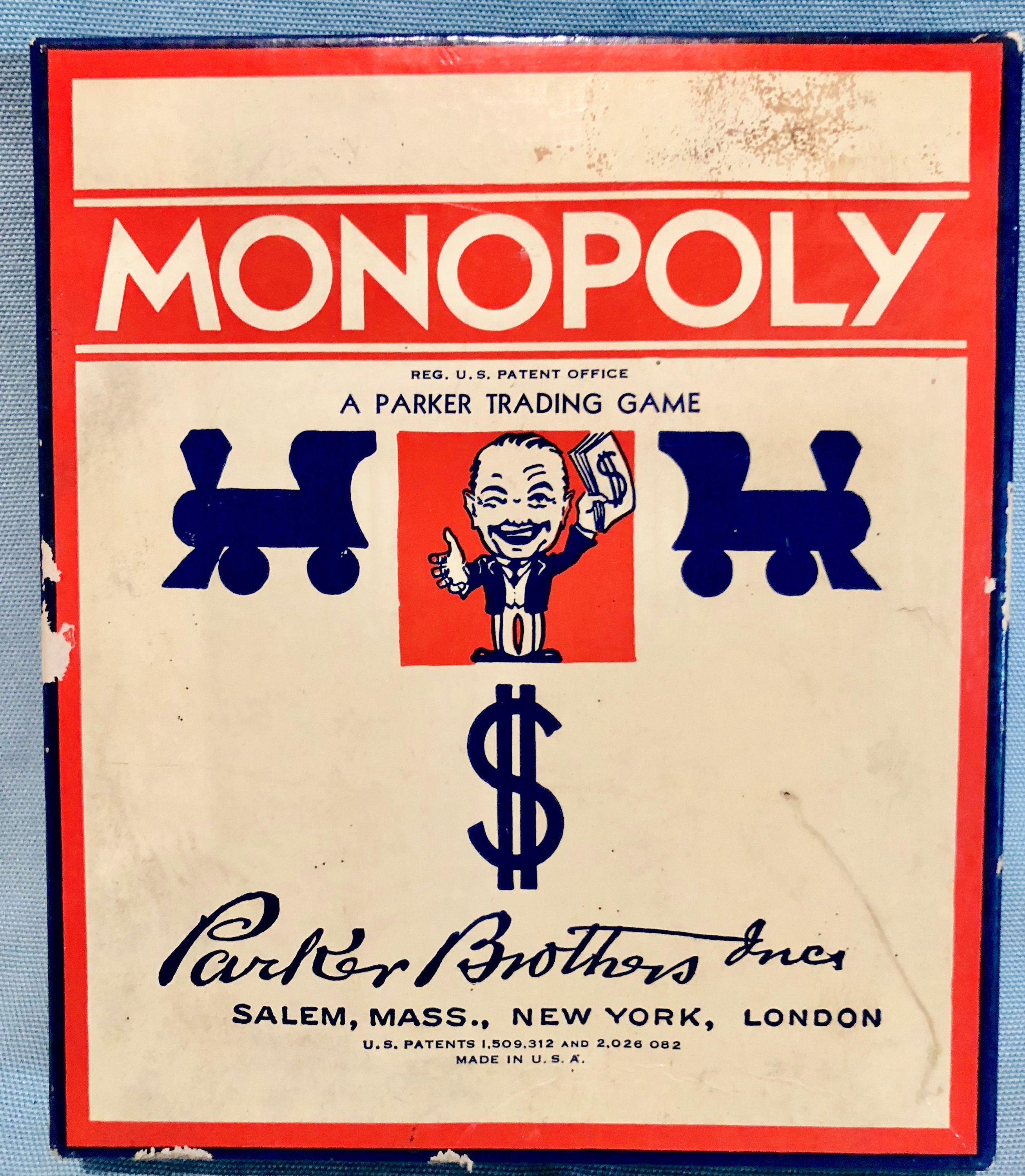
According to an advertisement placed in The Christian Science Monitor, Charles Todd of Philadelphia recalled the day in 1932 when his childhood friend, Esther Jones, and her husband Charles Darrow came to their house for dinner. After the meal, the Todds introduced Darrow to The Landlord’s Game, which they then played several times. The game was entirely new to Darrow, and he asked the Todds for a written set of the rules. After that night, Darrow went on to utilize this and distribute the game himself as Monopoly.
Parker Brothers bought the game’s copyrights from Darrow. When the company learned Darrow was not the sole inventor of the game, it bought the rights to Magie’s patent for $500.
Parker Brothers began marketing the game on November 5, 1935. Cartoonist F. O. Alexander contributed the design. U. S. patent number US 2026082 A was issued to Charles Darrow on December 31, 1935, for the game board design and was assigned to Parker Brothers Inc. The original version of the game in this format was based on the streets of Atlantic City, New Jersey.
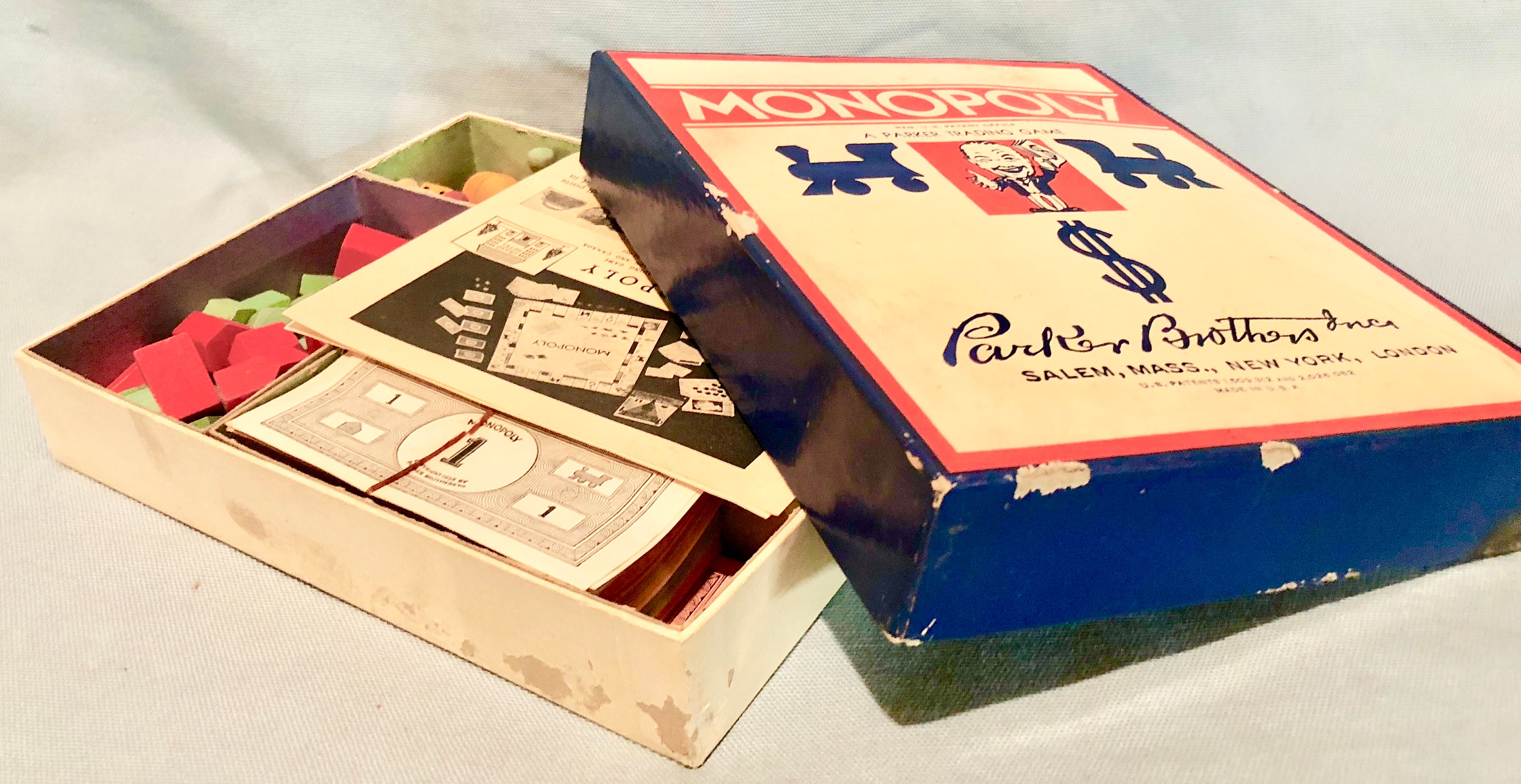

monopoly (1941)
1941, the British Secret Intelligence Service had John Waddington Ltd., the licensed manufacturer of the game in the United Kingdom, create a special edition for World War II prisoners of war held by the Nazis. Hidden inside these games were maps, compasses, real money, and other objects useful for escaping. They were distributed to prisoners by fake charity organizations created by the British Secret Service.
In the Nazi-occupied Netherlands, the German government and its collaborators were displeased with Dutch people using Monopoly Game sets with American or British locales, and developed a version with Dutch locations. Since that version had in itself no specific pro-Nazi elements, it continued in use after the war, and formed the base for Monopoly games used in the Netherlands up to the present.
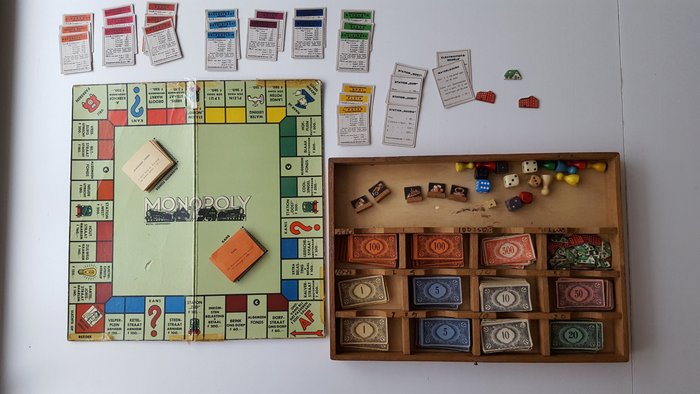
MONOPOLY SHOW (1990)
Monopoly is an American television game show based on the board game of the same name. The format was created by Merv Griffin and produced by his production company, Merv Griffin Enterprises.
Monopoly aired as a summer replacement series on ABC along with Super Jeopardy!, a special tournament edition of Griffin’s quiz show. Monopoly premiered on June 16, 1990, and aired following Super Jeopardy! for twelve consecutive Saturday nights until September 1, 1990.
Former Jeopardy! contestant Mike Reilly was chosen to host the series, with Charlie O’Donnell as announcer. Three separate women, Kathy Davis, Kathy Karges, and Michelle Nicholas, served as the co-host/dice roller.
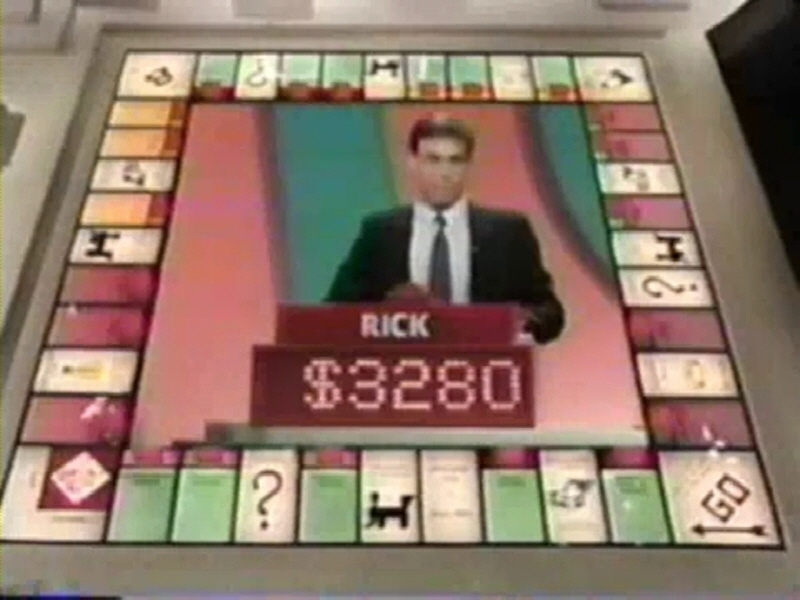


HASBRO (1991)
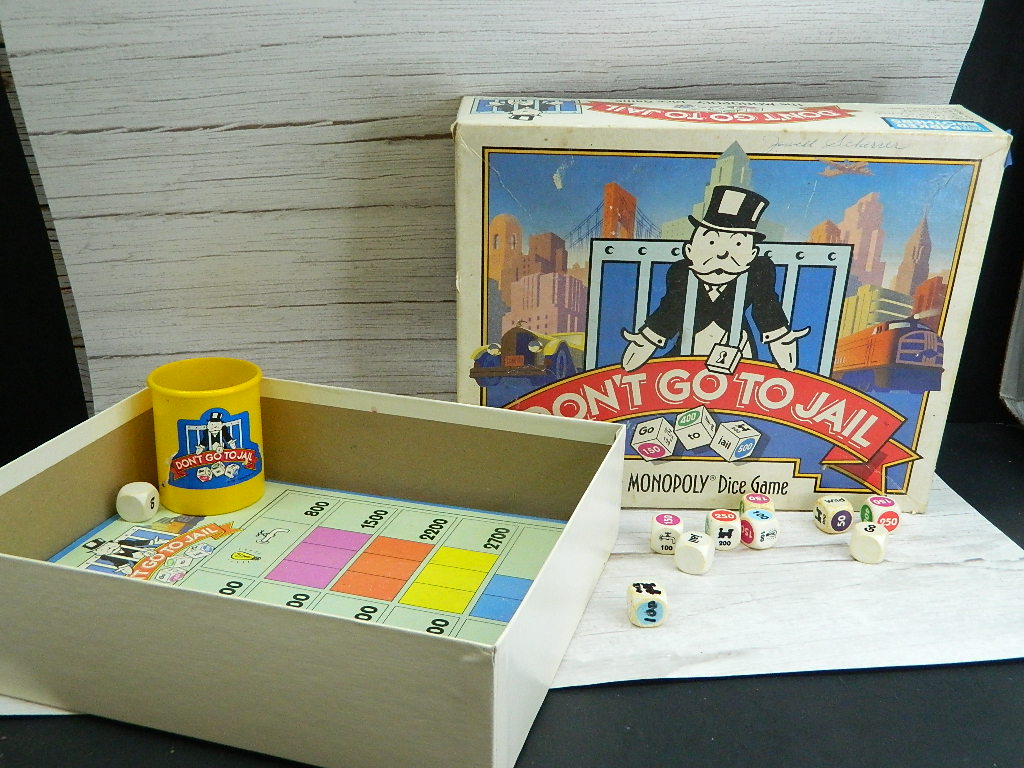
Hasbro acquired Parker Bros. and thus Monopoly in 1991. Before the Hasbro acquisition, Parker Bros. acted as a publisher only issuing two versions at a time, a regular and deluxe. Hasbro moved to create and license many other versions of Monopoly and sought public input in varying the game. A new wave of licensed products began in 1994, when Hasbro granted a license to USAopoly to begin publishing a San Diego Edition of Monopoly, which has since been followed by more than a hundred more licensees including Winning Moves Games (since 1995) and Winning Solutions, Inc. (since 2000) in the United States.
monopoly junior (1991)
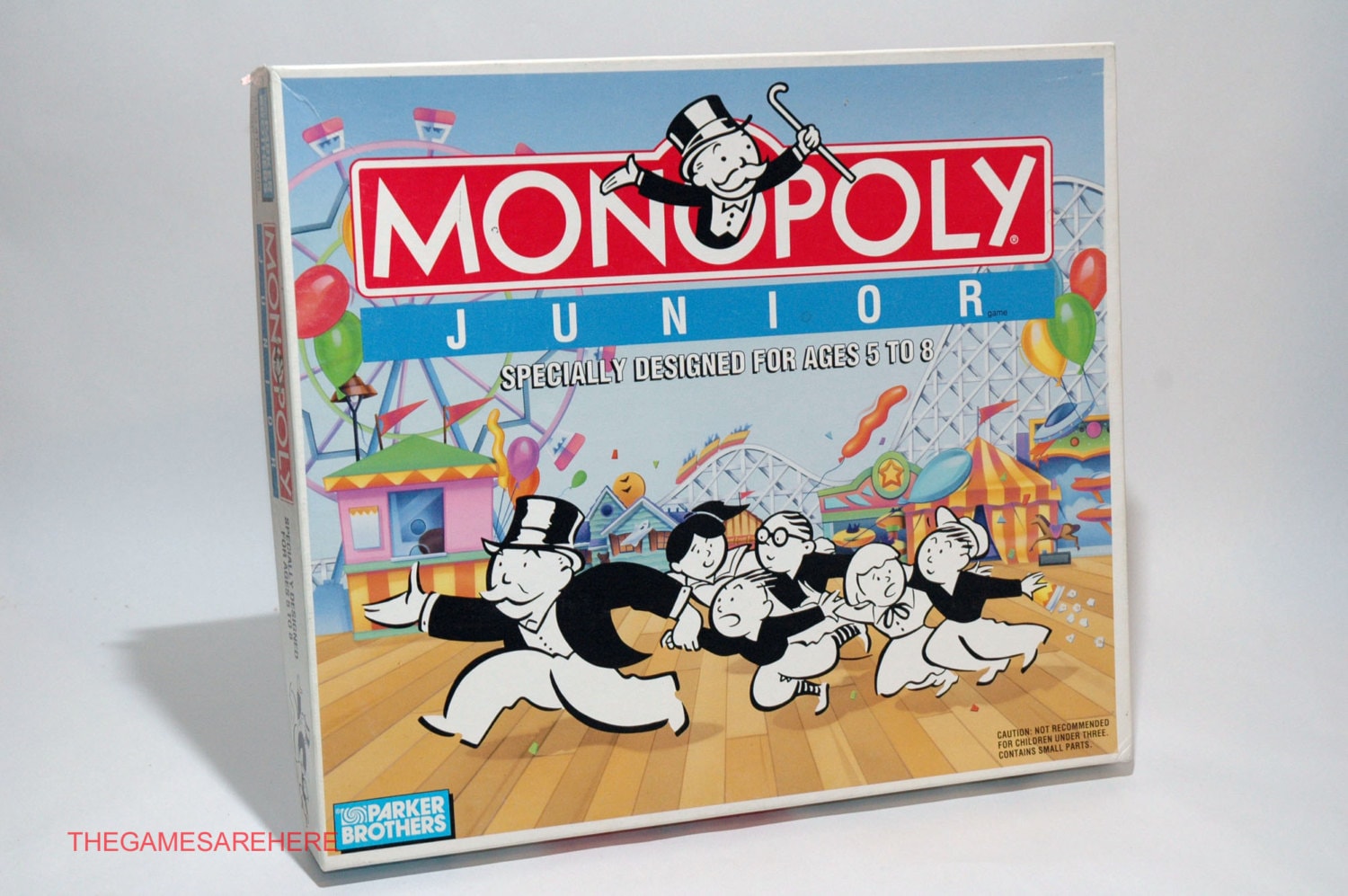
Monopoly Junior is a simplified version of the board game Monopoly, designed for young children, which was originally released in 1990. It has a rectangular board that is smaller than the standard game and rather than using street names it is based on a city’s amusements (a zoo, a video game arcade, a pizzeria, etc.) to make the game more child-friendly. There are many different models of the game.

monopoly in video GAME (1991 - 94)

Monopoly is a video game based on the board game Monopoly, released on Game Boy, Genesis, NES, and SNES. Developed by Sculptured Software and published by Parker Brothers (the Game Boy version was published by Majesco Sales), this title was one of many inspired by the property.


monopoly in pc (1995)
Developed by Parker Brothers and Hasbro, and published by Westwood Studios Monopoly is a board game converted to the PC platform. Running in Windows 3.1 or DOS the game maintains the basic gameplay of the physical version while adding interactive menus.
monopoly COLLECTION (1991)

VINTAGE 1991 MONOPOLY FRANKLIN MINT COLLECTOR’S EDITION BOARD GAME..COMES WITH A WOODEN STORAGE CASE WITH WOOD VENEERS AND DECORATIVE METAL PLAQUES, ROLLING AREA AND DRAWERS FOR THE TOKENS AND MONEY.

annversary collection






monopoly collection

